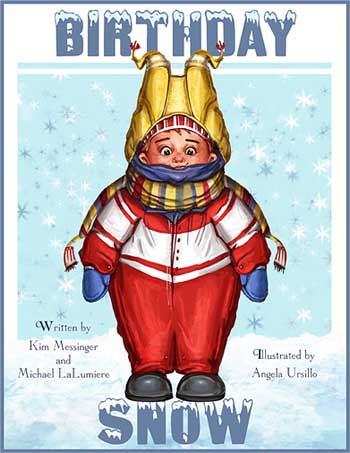The Things You Don't Know That You Don't Know About Writing Children's Books
So there I was. I had three manuscripts in front of me. A respected colleague had just ripped my face off for spending time on such folly. What was I going to do now?
He was blasting the idea of the concept more than the manuscripts. But he had looked at the stories and was still willing to yell, "What's the point.''
That certainly gave me pause even though the niche we were going after was closer to low-key, warm and fuzzy, than the classic children's tale that would change the world.
I consider myself a professional. If I get a negative critique I'm not going to blow it off like so many beginning writers do. They somehow rationalize that it's the audience's mistake if they don't get it, not theirs. In many ways that's what gives self publishing the bad reputation it has.
So my attitude became, "The world is going to have to convince me that this or these stories are good enough to be published by somebody that was a professional.'' AND FRIENDS AND FAMILY DON'T COUNT. Friends and family are always going to be kind and pull out the one positive thing you can bask in. The publishing world is a brutal place to make a living so the only time you should take Friends and Family comments to heart is when they say something negative. Then you have a BIG PROBLEM. If they're willing to bring it to your attention you have a show stopper on your hands.
So how could I start getting meaningful feedback from the world?
There's a million freelance children's book script doctors and editors out there. That's where I started. I sent a manuscript to two different freelance editors - one on the West Coast and one on the East Coast. They generally charge per page. You will pay anywhere from $60 to $200 for a picture book manuscript critique.
The first thing you'll notice from this experience is there are basic picture book and general book things that you need to know. Of course I didn't know them and the script doctors got to call me a newbie in so many words for not knowing the basics in a business that you profess to be working in. Great start.
Here are the three silliest things I didn't know before i started this process:
If you write a sentence on a piece of paper or a computer file you own the copyright on that sentence. Beginning writers make a big deal about plastering copyright over everything so no one will steal their words. Can't be done you newbie.
If your goal is to send your manuscript to a publisher don't worry about illustrations. Publishers don't want illustrations from authors. Why? Authors don't have a clue when it comes to the illustration level required to sell a book. Publishers use their own illustrators for good reason.
A picture book has a format. It must be done in 32 pages. Not 30 or 36. 32. You can do 36 pages but no publisher will buy it. It's a printing press thing rookie.
Way to go Michael. Or should I say Mr. Professional.
Michael LaLumiere


